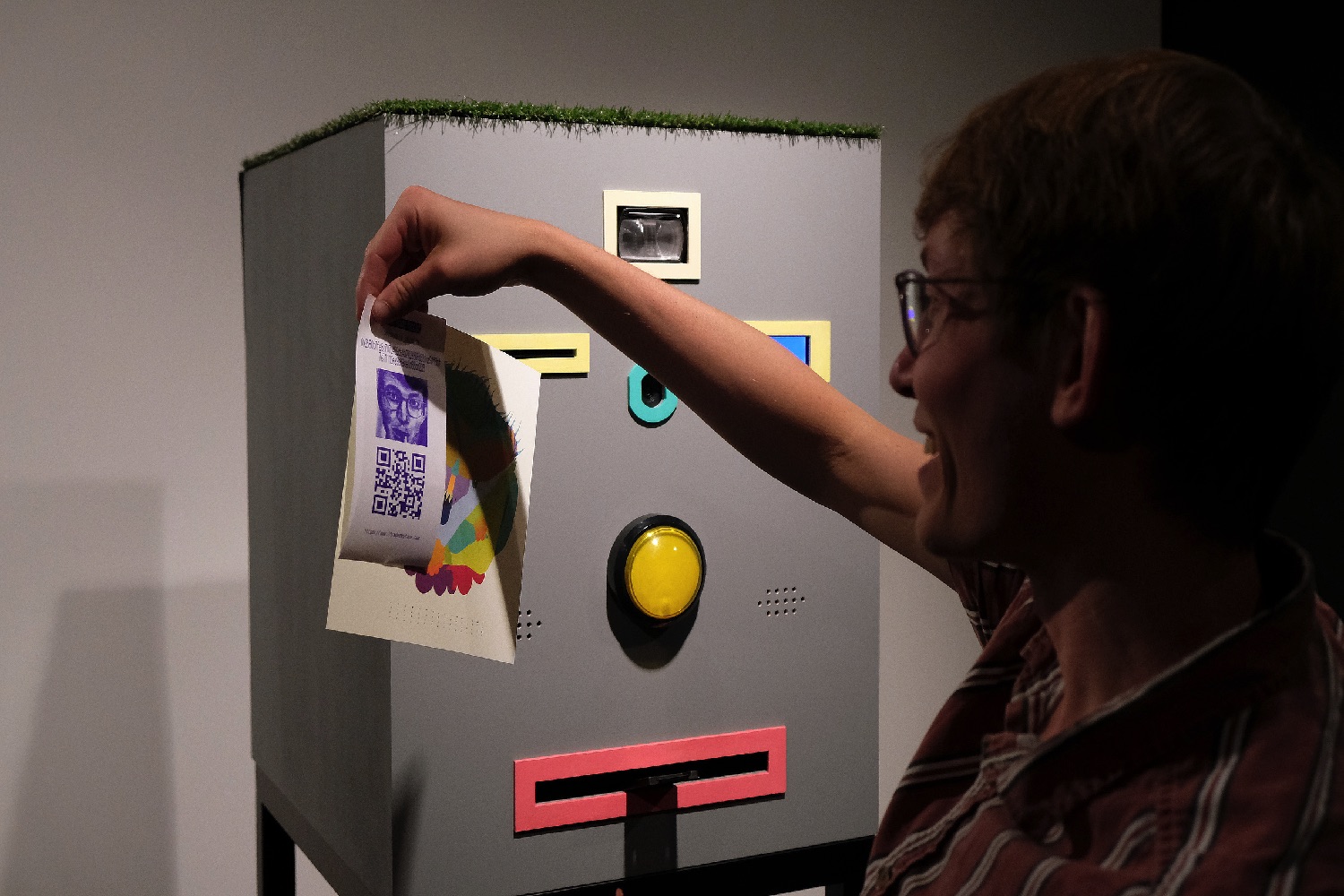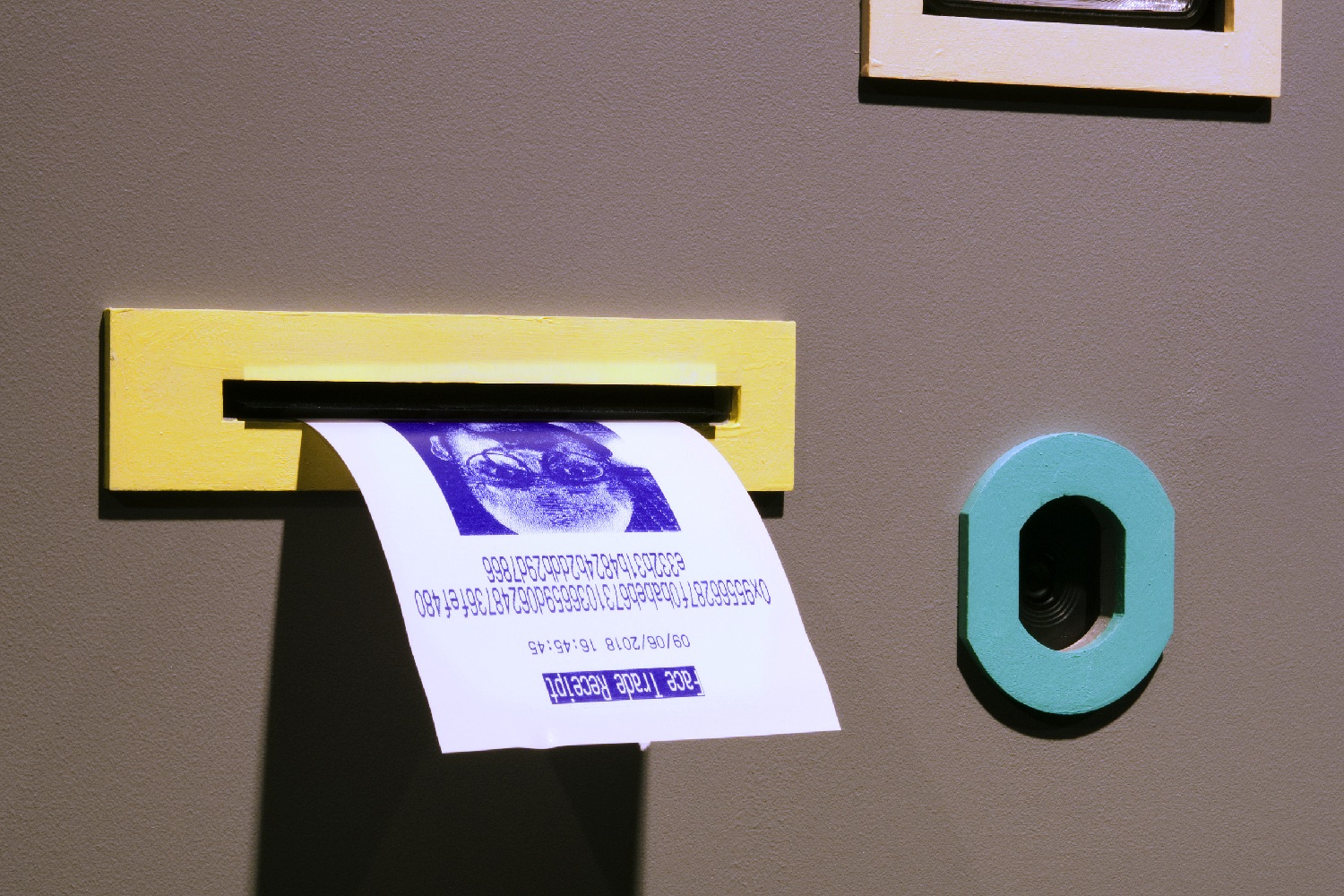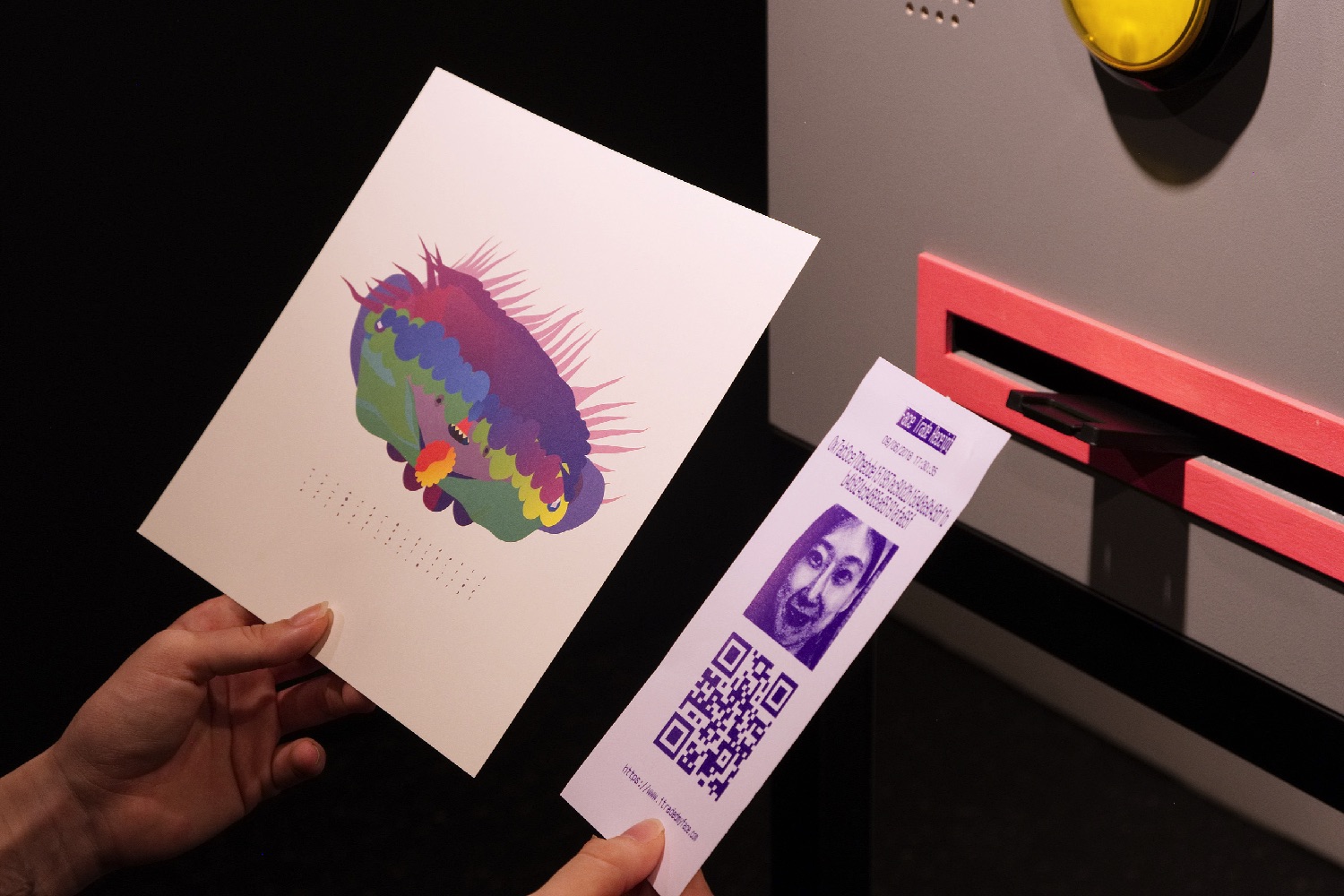The question of how much of your personal data you woul be willing to give up for ostensibly free stuff is what drives the value of some of the world’s biggest tech giants — ranging from Google to Facebook. It’s also a conundrum that is put to the test in the latest creation of coder artist Matthias Dörfelt.
Dörfelt has built a high-tech camera-equipped vending machine called Face Trade (no, not the movie where John Travolta and Nicolas Cage swap faces) which exchanges unique prints of computer-generated faces for users taking a selfie that is then permanently stored in the Ethereum blockchain.
“My main goal for Face Trade was to create an installation that is odd, surprising, and fun on the surface, while being a comment and experiment on how easily people are willing to give up personal — and in this case even biometric — information in order to receive a ‘free’ artwork,” Dörfelt told Digital Trends.
Dörfelt said that the machine-generated faces are generated on the spot by the computer vending machine. They are designed to be intentionally ambiguous with faces that are showing emotions which are not immediately identifiable.
“It is not quite clear if the faces are happy, evil, exhausted, or possibly trying to deceive you,” he said. “The drawings are, in a lot of ways, a representation of my feelings towards the short but explosive history of blockchain, which somewhat oscillates between the amazing promises of democratization and decentralization on the one hand, and silk road, greed, and hyper-capitalism on the other end of the spectrum.”
The Face Trade vending machine is currently being exhibited at Art Center Nabi in Seoul, South Korea. “Right now, it is running on an Ethereum test network as I consider the current exhibition as more of a test run,” Dörfelt continued. “This means, as of now, the faces are not stored in the main Ethereum blockchain — which I guess is a better deal for the participants. [However], there will be another Blockchain-related show in late November, also at Nabi, where the piece will be shown again. I plan to have things running on the main Ethereum network for that second show.”
While projects such as this are certainly fun in their conception (and, hey, who wouldn’t want their own computer-generated artwork?), there’s no doubt that it taps into our anxieties surrounding a much bigger issue when it comes to privacy and today’s internet titans.
Ask yourself: Would you be willing to make this particular trade? There’s a unique algorithmically generated artwork if you would!





